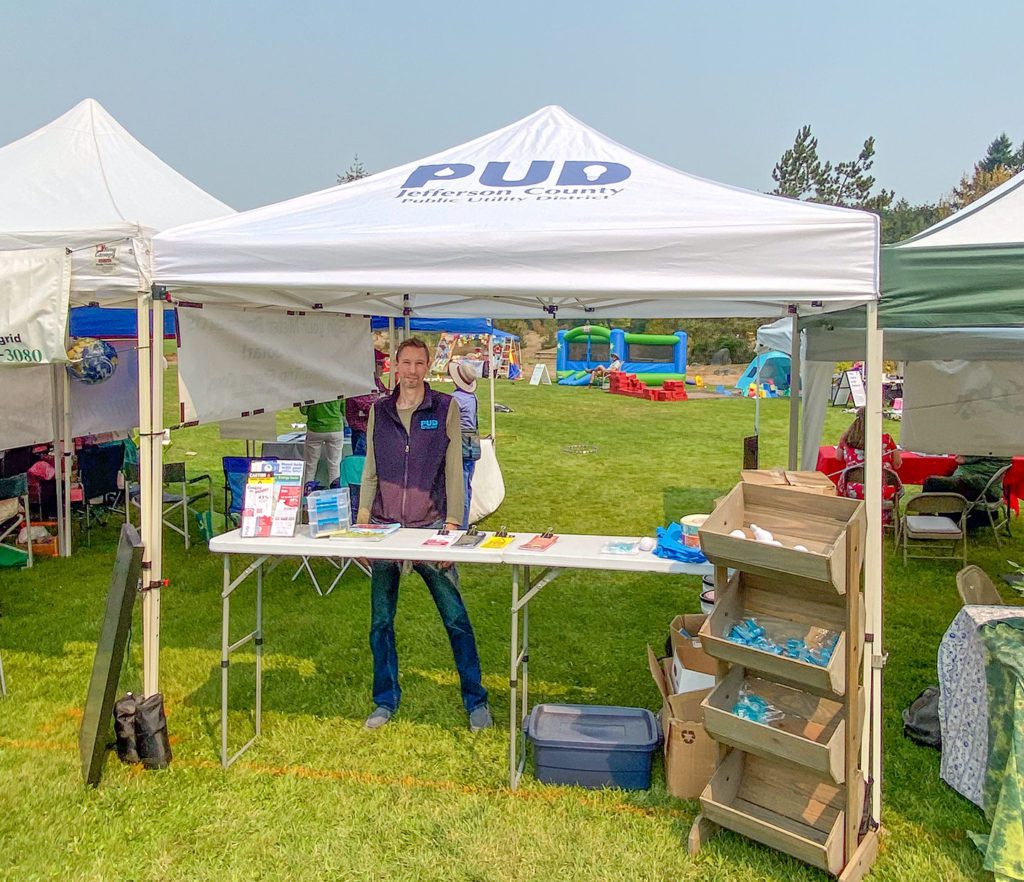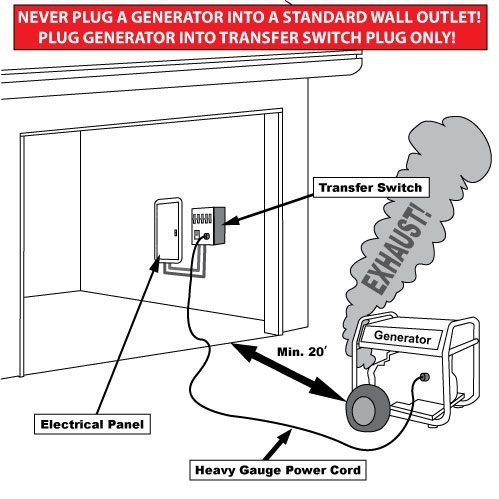All County Picnic – Regional Resiliency at its Best!
Preparing for the unknown is a big challenge.

Thankfully, due to the hard work of regional groups and local volunteers, emergency preparation is not only simplified, but helps neighbors engage on a whole new level! The 2023 All County Picnic put on by the local Production Alliance is case and point on how connected our community is toward preparing for the unknown.
The All County brought together groups such as Jefferson County Emergency Management, Jefferson County Sheriff’s Department, East Jefferson Fire, Jefferson Healthcare, the PUD, Local 20-20 and many more with the focus on resiliency in the face of an emergency.
PUD staff presented on challenges of large scale outage response, and focused on where residents can find the latest outage updates, outage safety, plus gave a glimpse behind the scenes as utility staff work to prioritize response during and after storms.
Great questions from the All County:
Where can I get the latest outage updates from the PUD?
We post timely updates for larger-scale outages on our website main page for the easiest access direct from the utility. Just look for the orange colored text bar on jeffpud.org for all the latest.
Updates are also posted to our Jefferson County PUD #1 Facebook page, our Nextdoor page, and Twitter feed. Please note that during outage events we are often unable to response to direct messages, so please report outages or lines on the ground via our main customer service line at: (360) 385-5800 at any time, or via your SmartHub profile on our website, here.
Nextdoor allows for Emergency Alerts to be broadcast county-wide, and NIXLE updates for emergencies can also be received from the Department of Emergency Management by texting jeffcodem to 888777 or on the JeffCom website, here.
Generator Safety: What are the guidelines for using a generator during an outage?
Generators can help keep the lights on and run key appliances when the power is out, but improper use of a generator can be a danger to you, your neighbors, and PUD line crews. There are two kinds of generators: portable and permanent. Portable generators are intended to provide power to an extension cord which is  then plugged directly into an appliance or piece of equipment. Permanent generators are wired directly into the electrical system of your home.
then plugged directly into an appliance or piece of equipment. Permanent generators are wired directly into the electrical system of your home.
Improper connection of a generator is called “backfeeding”. Backfeeding is when power from a generator travels through the electrical panel out to the transformer, which then is converted into thousands of volts and distributed onto the neighborhood’s utility lines. Any generator not used to directly feed a specific appliance must be routed through a professionally installed transfer switch at the homes electrical panel.
Remember: A line crew responding to an outage does not know a line is being backfed and contact with the energized line can be fatal! Lines damaged by a tree that are on the ground can also carry lethal amounts of energy. Always stay at least 50 feet from any down lines and contact the PUD right away!
How long do cell phone towers last during larger outages?
Short answer: It depends.
Cell phones can be a lifeline for outage updates and emergency alerts, and the signal can depend heavily on several factors, including: severity of the outages regionally (scale); the backup power supply for the cell tower(s) themselves (battery or gas-powered); size of the local tower. In general, most cell towers can operate for several hours up to several days, and all the while PUD staff is working hard to restore power to the region.
Emergency prep for the home could include a fully-charged battery power pack to recharge essential devices.
Please note, however, that your safety is paramount in the hours and days after a large scale event. Please plan ahead with your emergency prep to understand when and if it is safe to travel to an area where power has been restored and services are available, should your needs require it.